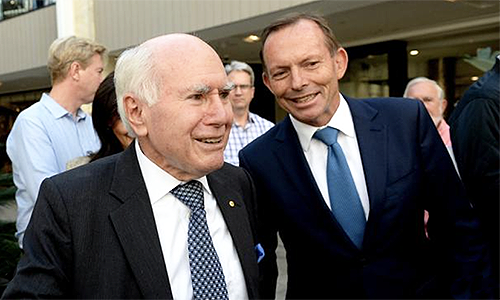Keir Starmer’s geopolitical in-tray will arguably be one of the most daunting in recent history. The Prime Minister faces a number of conflicts and hard choices – and a completely different geopolitical landscape to the last time Labour was in power.
Key among these challenges is China, which has risen in the past 14 years to become an economic and military superpower, and a disruptive antagonist to the liberal international order.
A relationship with China requires careful balance and an understanding of the unseen traps that might lie ahead
So far the new government’s position has been mixed. Work has begun on the promised China audit, which David Lammy described as ‘a full audit across Whitehall of our relationship with China so that we can set the direction and a course.’ A new review of the benefits of the Aukus security partnership between Australia, the United Kingdom, and the United States has also been announced. But a decision on China’s potential inclusion in the top tier of the Foreign Influence Registration Scheme, requiring all individuals engaged with the Chinese government to formally declare their activities, has been delayed. Meanwhile, Keir Starmer last week held the first call by a British Prime Minister with President Xi since March 2022, and a Beijing trip for the Foreign Secretary is being discussed for the autumn.
A relationship with China requires careful balance and an understanding of the unseen traps that might lie ahead. If Starmer and his team are looking for a practical example of what does and doesn’t work with China, they should study the experience of their Australian counterparts, who also came to power after a long period in opposition.
In its first year, Australian Labor held firm to the strong security position established by the previous government, and was able to secure some important wins.
But subsequent waves of coercion and aggression from China tested the practicality of the government’s cooperation doctrine. For UK Labour, the lesson must be that its ‘compete, challenge and cooperate’ slogan should be understood as a hierarchy – in which competition comes first and cooperation is contingent on China’s actions.
An incoming government cannot predict every new China challenge that will arise, but it can learn some other lessons from Australia.
First, fatalism and declinism towards Beijing are self-fulfilling prophecies, and must be overcome. Australian Labour acted deftly in the Pacific. It brokered meaningful new agreements with Pacific countries to counteract China’s increasing security presence, with tangible results. Britain too has instruments to deploy to make a difference.
Second, good faith compromises will not be reciprocated by China, and will only encourage more malign behaviour. Australia’s initial reluctance to speak up against China’s bullying of the Philippines in the South China Sea didn’t stop the Chinese military threatening Australian forces while they were on lawful patrols, putting Australian lives at risk. China’s breaches of international rules and bilateral agreements must be called out every time, not only when it’s convenient.
Third, no official visits should be made to Beijing before the completion of the China audit. China’s leaders will inevitably seek leverage in areas where sovereign decisions should lie with Britain. Labour should prioritise visits to core Euro-Atlantic and Indo-Pacific allies first.
Fourth, a UK-China engagement strategy must not involve policy compromises, nor set a precedent of cowed silence. Canberra abandoned two World Trade Organization cases against China for its unfair trade practices. Only then did Beijing begin to remove some of the tariffs it had imposed against Australia. This allowed Beijing to mask its economic coercion as an act of magnanimity. Realpolitik has its place, but China should not be rewarded for things it should never have done in the first place.
Fifth, bipartisanship is essential for long-term resilience towards China. Labour should focus on constructively building on the work done by Conservative governments, while filling in any gaps and unfinished business. The new Defence Secretary’s intention to share intelligence briefings with the opposition, and the appointment of former National Security Adviser Stephen Lovegrove to the Aukus review, are welcome signs.
Sixth, be frank and transparent with the British people about the reality of the threats from China and the resources required to address them. Western governments have, at times, refrained from adequately highlighting Beijing’s malign behaviour, such as its support for Russian aggression against Ukraine. This squanders the opportunity to build public support for necessarydefence spending.
Finally, Labour should be aware that we are not simply bystanders in the US-China story. China retains a significant interest in the UK, and Britain holds a considerable degree of agency to effectively project deterrence. This requires a coherent approach to both domestic and international policy, building on the UK’s strengths in innovation, technology, research, and policy.
In the coming weeks and months, there will be no shortage of voices in Westminster and Whitehall advocating for a fresh start with Beijing and a greater emphasis on dialogue. It is vital that the UK engages with China, but from a position of strength and confidence. The early decisions made by this government will be crucial if the UK wants to succeed against a global competitor more formidable than any we have faced in modern times.









